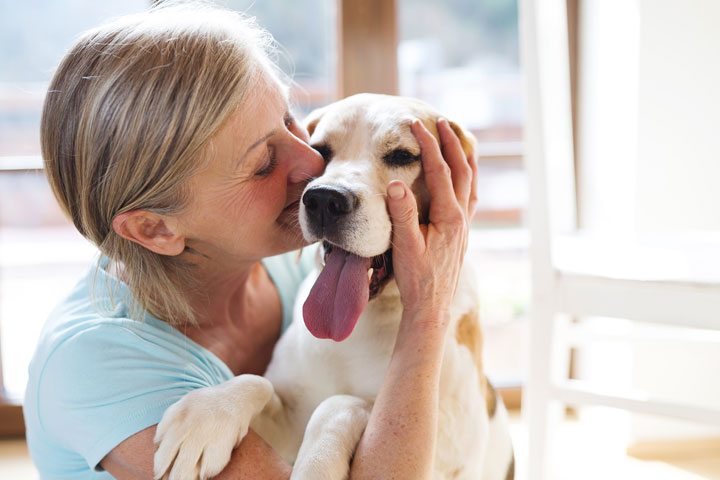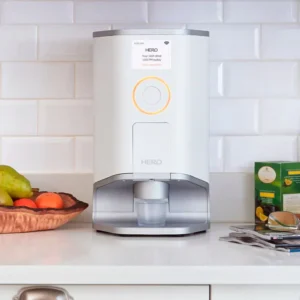It is conventional wisdom that most seniors would rather live out their lives in their own homes. Quality of life is generally higher at home; and moving out at later stages of life can be impactful on health and longevity.
Nonetheless, as people age real problems emerge while living independently at home. There are challenges that arise that never existed before. Fortunately, innovative technology has brought more convenience and security to the older population.
The following is a list of everyday issues most seniors face and technological solutions that can help.
Day to Day Concerns
Issue 1: Getting out of the car.
With the passing of time, the muscles in our legs get weaker. Metro Car Handle Plus can be a solution to this problem. This is a simple device that inserts into the latch on the car door frame which gives the passenger needed leverage to rise. This is available at Amazon for less than $30.
Issue 2: Risk of being scalded at sink and/or shower.
Memory issues can cause seniors to neglect checking the water temperature prior to showering, bathing, dishwashing and/or grooming, This poses a serious risk of burns and scalding. There are a variety of shower anti-scald valves and devices that can be installed to avoid scalding.
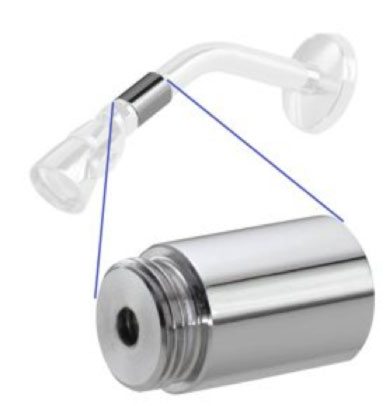
An anti-scald device for the shower
Issue 3: Risk of stove top fires.
Memory issues again can present risk of burning and fires in the kitchen at the stove. One can be distracted during food preparation by a doorbell or phone call and before you know it, the stove top is on fire. Two products introduce greater safety and reduced risk.
The first option is the SmartBurner. This system prevents stovetop fires automatically. It goes over existing burners. It will not allow food/oil to ignite or aluminum to melt. Moreover, bathrobes won’t catch on fire, most plastics won’t ignite and it also increases energy savings.
The second option is an easily installed stove top fire extinguisher. It is held in place by magnets to the hood. These type of extinguishers will douse the stove top when it senses a fire.

Stove Top Fire Stop Automatic C Fire Extinguisher
Issue 4: Remembering to take medication.
Medication compliance is a common problem. People have difficulty remembering which pills they should take, or how many to take at what times. They also have problems opening containers. Several companies make automated pill dispensers in different sizes and styles with varying functions. The Hero Med Dispenser is about the size of a coffee maker. It can hold a month’s supply of ten different pills. When it’s time to take a pill, the dispenser plays a tone and flashes a light. The user presses a button and the machine dispenses the correct dose into a plastic cup. The dispenser can be monitored remotely so caregivers will know when a dose has been missed, when it’s time to refill the machine, and when a prescription needs a refill.
Issue 5: Getting Lost
Unfortunately for some seniors with age comes memory loss and the tendency to wander off. There are a number of interventions for this. One is called the GPS SmartSole Insoles. These are GPS enabled insoles that slip on inside shoes for easy geo-tracking. One of the main advantages of these insoles is that it does not require the user to remember to take a tracking device (ie; a pendant) with them.
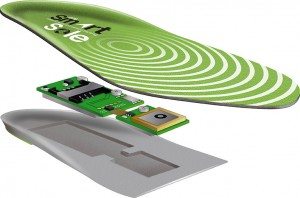
Cross section of the Smart Sole (credit: GPS SmartSole)
Tracking devices can also be embedded in watches and bracelets or attached to clothing. Each device has its own benefits and limitations. The Alzheimer’s Association offers guidance to individuals who want to match the right device to their parent’s needs.
Issue 6: Vacuuming
Vacuuming is a tedious job but it needs to get done, both for safety’s sake and cleanliness. In steps the Roomba from iRobot. The Roomba is a vacuum robot that moves around the home vacuuming the floors and rugs. It will do this automatically and will return to its charging station upon completion or when it senses it needs charging.
Issue 7: Everything Else (Are they awake? Are they sleeping too much? Did they eat? Did they wander off? Is the toilet flooding?)
There are myriad problems, but your parents refuse to have someone working in the house. You’re living a thousand miles away. They don’t want to live with you — and they’re not going to an assisted living facility. There are a number of systems that can passively monitor several activities (ie; doors opening, room temperatures, refrigerator doors opening, toilets flushing, etc…).
Of course, you don’t need/want to know every single occurrence of each activity. These systems can be programmed to alert you only when they sense extremes. Some will actually calculate averages (ie, 8 hours for sleep) and alert you when there’s been a drastic deviation (ie; 14 hours in bed). There is a very informative book that reviews a wide range of these systems called Caring From Afar.
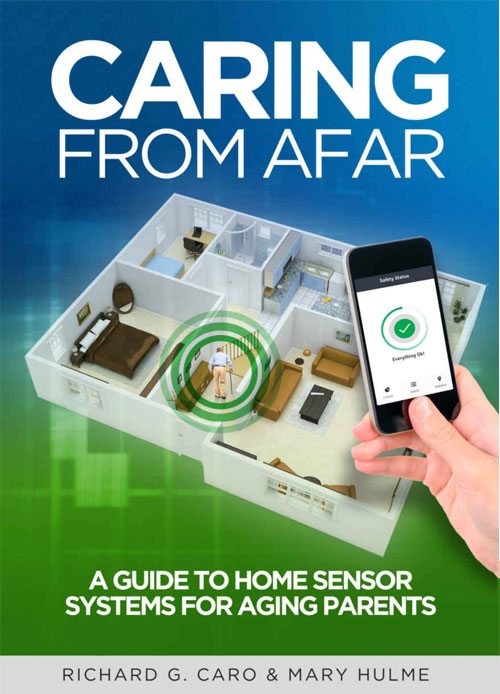
Caring from Afar Book Cover, Credit: Richard G. Caro & Mary Hulme
Credit for all images and videos used goes to their respective companies.
